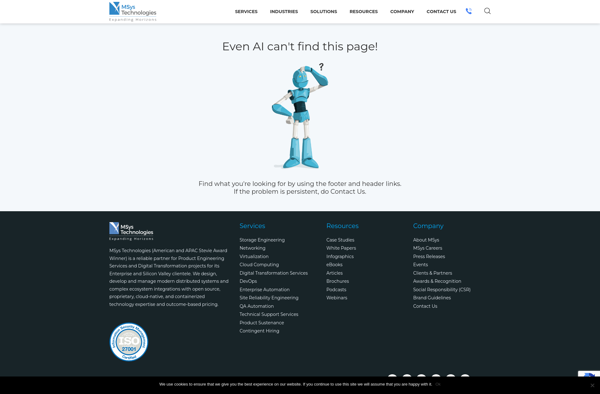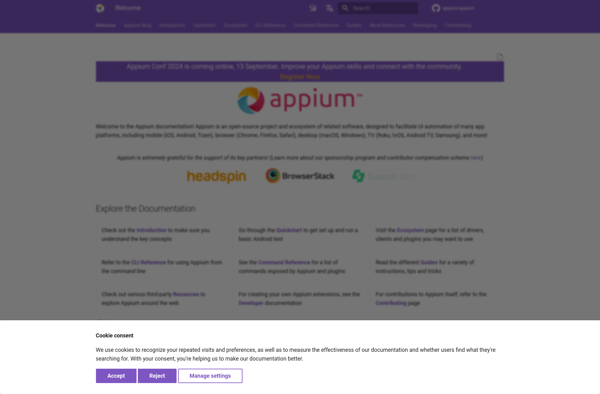Description: Mobitaz is a mobile device management (MDM) solution designed for small to medium-sized businesses. It allows organizations to enroll, configure, secure, monitor and manage mobile devices like smartphones and tablets centrally.
Type: Open Source Test Automation Framework
Founded: 2011
Primary Use: Mobile app testing automation
Supported Platforms: iOS, Android, Windows
Description: Appium is an open source test automation framework for mobile apps. It allows you to automate tests on native, hybrid and mobile web apps for iOS and Android using Selenium WebDriver API.
Type: Cloud-based Test Automation Platform
Founded: 2015
Primary Use: Web, mobile, and API testing
Supported Platforms: Web, iOS, Android, API

